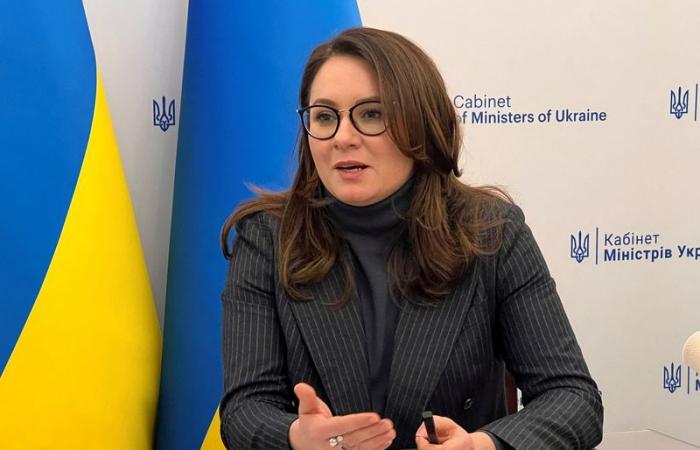Ukraine's war-era government will boost domestic value-added production to reshape its commodity-based economy, raise incomes, spur growth and bring millions of Ukrainians home at home, said the first deputy prime minister.
Yulia Svyrydenko, who is also economy minister, said in an interview with Reuters that these changes were necessary to allow the country to recover, rebuild after the colossal damage caused by the war and bring the economy closer to the European Union.
“Our task is to support Ukrainian production and consumption of Ukrainian products,” the 38-year-old minister said in an interview.
The government has already established a number of programs offering grants and loans to small and medium-sized businesses to help businesses relocate to safer areas, and has created dozens of industrial parks with specialized tax measures.
“The task is to move away from the commodity economy and build an economy that produces value-added goods. We have challenges to accelerate growth, because we have to rebuild and also integrate into the European Union.”
The government raised its economic growth forecast for this year to 4%, from 3.5% previously, due to better preparation for challenges in the energy sector, Svyrydenko said.
The government's conservative scenario for 2025 forecasts a GDP increase of 2.7%, as war, security risks, the expected energy deficit and staff shortages will limit growth, she added.
The central bank is more optimistic about the economic outlook for 2025 and forecasts growth of 4.3-4.6% in 2025 and 2026.
LOSSES ACCUMULATE
As the war with Russia approaches a thousand days, human, social and economic losses accumulate. Mr Svyrydenko said the government, the World Bank and other partners were working on a new assessment of the economic losses caused by the war.
The latest available estimate shows that direct damage in Ukraine will reach $152 billion in December 2023, with the most affected sectors being housing, transport, trade and industry, energy and agriculture. The total cost of reconstruction and recovery is estimated at $486 billion.
“This is 2.8 times more than our nominal GDP in 2023,” Mr Svyrydenko said.
Despite economic growth in 2023 and so far in 2024, Ukraine's economy is only 78% of its size before the February 2022 invasion, Svyrydenko said.
The main goal was to make the Ukrainian economy more self-sufficient.
“Of every hryvnia consumed in Ukraine, 40% goes to the budget… and this is not only about economic self-sufficiency, but also about our defense capacity,” she said.
Ukraine devotes the majority of its public revenue to financing its defense efforts. kyiv relies heavily on financial aid from its allies to finance social and humanitarian spending. Nearly $100 billion in Western economic aid has been received to date.
Reducing electricity generation capacity after intensified Russian bombing of Ukraine's power sector has been a major challenge this year and in the future, Svyrydenko said.
The government oversaw a massive repair campaign, agreed to increase electricity imports from Ukraine's western neighbors, and supported companies in their efforts to increase their energy independence by simplifying regulations and allocating subsidies. funds.
Another difficult task was the return of Ukrainians to their homeland, Mr. Svyrydenko said. Ukrainian businesses see labor shortages as one of their main problems, as millions of Ukrainians are abroad and tens of thousands of Ukrainian men have been mobilized.
The government plans to establish a specialized agency to lead efforts to return Ukrainians to their country. So far, 4.1 million Ukrainians have been temporarily registered in Europe, according to official data.
Mr Svyrydenko said government research showed around 53% were ready to return once the security situation improved and jobs and housing became available.






